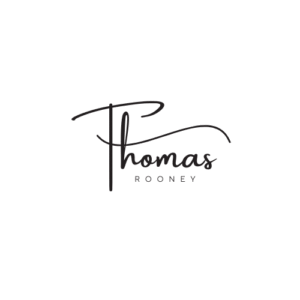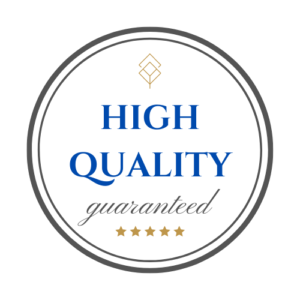In today’s fast-paced and ever-evolving business landscape, the role of a consultant has never been more crucial. Whether companies are navigating the complexities of digital transformation, optimizing operations, or strategizing for growth, the demand for expert guidance can make the difference between success and stagnation. But what exactly sets an excellent consultant apart from the rest? What traits should organizations look for when hiring a consultant, and what qualities should aspiring consultants cultivate to excel in this competitive field?
Here, we delve into the core traits that define an exceptional consultant, drawing from industry insights and case studies to illuminate what makes these professionals indispensable assets to any business.
1. Expert Knowledge and Continuous Learning
Deep, specialized knowledge in their field is the foundation of any great consultant. Whether it’s finance, technology, human resources, or marketing, expert consultants possess a robust understanding of industry standards, best practices, and emerging trends. However, the most exceptional consultants don’t stop there—they are lifelong learners. They continually update their skills, acquire new certifications, attend industry conferences, and stay abreast of changes and innovations in their area of expertise.
Case in Point:
Consider the insights from McKinsey & Company’s renowned consultants, who emphasize the necessity of staying relevant in a rapidly changing market. Their continuous learning approach ensures they can provide their clients with cutting-edge solutions.
2. Analytical and Problem-Solving Skills
Outstanding consultants are adept at dissecting complex problems and identifying innovative and practical solutions. They possess strong analytical skills, allowing them to assess data, recognize patterns, and forecast outcomes. This analytical acumen is coupled with a robust problem-solving mindset, enabling them to tackle issues from multiple angles and devise creative strategies.
Case Example:
Take the example of a consultant from Boston Consulting Group (BCG) who helped a manufacturing company reduce production costs by 20% through meticulous data analysis and strategic optimization recommendations. The consultant’s ability to pinpoint inefficiencies and recommend actionable solutions was instrumental in achieving this outcome.
3. Excellent Communication Skills
Any consultant must be able to convey ideas clearly and persuasively. Whether drafting a detailed report, presenting to stakeholders, or conducting training sessions, excellent consultants communicate complex concepts in an understandable and engaging manner. Their communication extends beyond words—they are also active listeners who value their clients’ perspectives and needs.
Communication Excellence:
Deloitte consultants are often highlighted for their outstanding communication skills. One Deloitte case study describes how their consultants facilitated a large-scale organizational change by effectively communicating the vision, plans, and benefits to all levels of the organization, ensuring buy-in and smooth implementation.
4. Interpersonal and Relationship-Building Skills
Building strong, trust-based relationships with clients is crucial for consultants. This goes beyond being personable—excellent consultants exhibit empathy, respect, and genuine concern for their client’s success. They understand that collaboration and trust are the bedrock of effective consulting relationships.
Real-World Example:
Consider the trusted advisory role that Bain & Company consultants often play. Their client relationships are characterized by deep trust and openness, enabling them to offer candid advice and support that truly adds value to the organization.
5. Strong Work Ethic and Professionalism
Consulting often involves rigorous schedules, tight deadlines, and high-stakes projects. The most successful consultants exhibit an unwavering work ethic, demonstrating reliability, dedication, and a can-do attitude. They handle stress gracefully and consistently deliver high-quality work.
Professionalism in Action:
PwC consultants, known for their strong work ethic, often go above and beyond to meet client needs. For example, during a critical phase of a client’s financial restructuring, a PwC team worked around the clock to ensure timely and accurate delivery of all project components.
6. Adaptability and Agility
Change is a constant in the business world, and excellent consultants thrive in dynamic environments. They are flexible and quick to adapt to new challenges, industry shifts, or unexpected obstacles. A distinguishing trait is their ability to pivot and modify strategies in response to changing conditions.
Adaptive Success:
A KPMG consultant demonstrated impressive adaptability when a client’s regulatory framework abruptly changed. By quickly recalibrating the strategy and implementing necessary adjustments, the consultant helped the client navigate through regulatory compliance without major disruptions.
7. Strategic Vision and Innovation
Exceptional consultants don’t just solve present problems—they help clients envision and achieve a future state of success. They possess strategic vision and the ability to see the big picture, often bringing innovative ideas that drive long-term growth and differentiation in the market.
Strategic Innovation:
One notable example is an Accenture consultant who helped a retail company transition from brick-and-mortar to a powerful e-commerce platform, leveraging cutting-edge technology and innovative marketing strategies. This transformed the client’s business model, opening new revenue streams and market opportunities.
8. Integrity and Ethical Standards
Integrity is non-negotiable for an excellent consultant. They operate with the highest ethical standards, ensuring transparency, honesty, and fairness in all their dealings. This not only builds trust with clients but also upholds the consultant’s reputation and the integrity of the consulting profession.
Ethical Excellence:
Ernst & Young (EY) consultants are praised for their strong ethical standards. A notable instance involved an EY consultant who declined a lucrative project because it involved practices that could potentially mislead stakeholders.
In Conclusion
The traits of an excellent consultant are multifaceted, blending deep expertise with critical soft skills and ethical fortitude. Whether you are a business leader seeking consultancy services or an aspiring consultant, understanding and cultivating these traits can pave the way for successful outcomes and lasting contributions to the business world. As industries continue to evolve and face unprecedented challenges, the demand for exceptional consultants who embody these traits will only grow, making their role ever more pivotal in shaping the future of business.

